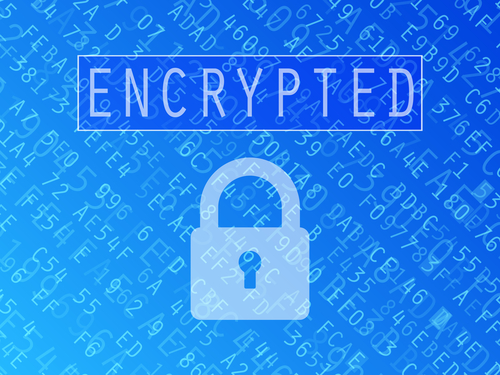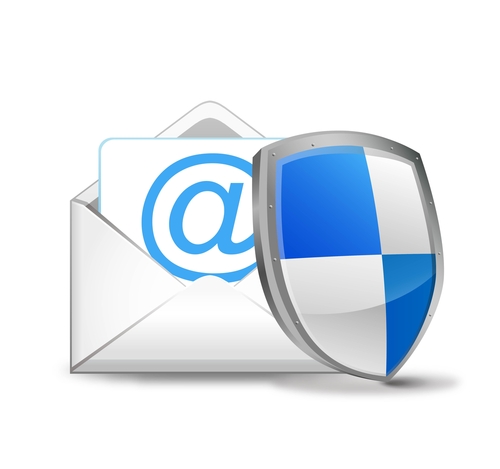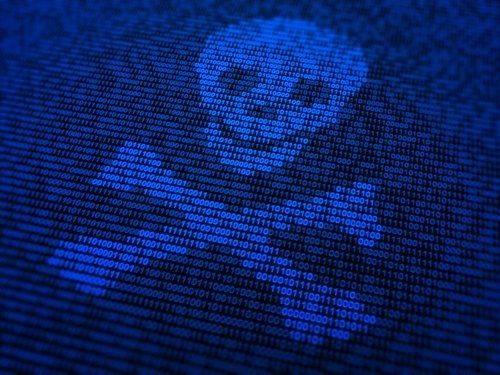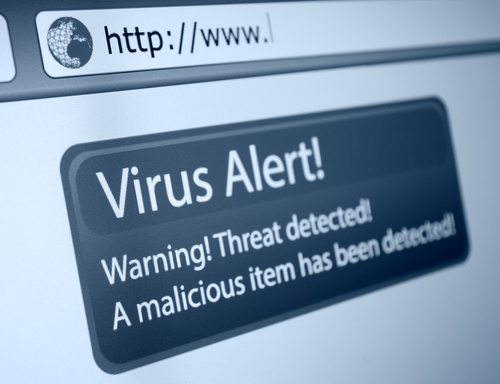July 25th, 2013

At the beginning of July, a vulnerability on Android phones was discovered, which allows hackers to gain access to your data or even take control of your phone. Listening to phone calls, taking photos and stealing passwords is all possible if your phone is exploited.
To their credit, Google acted quickly to try to seal up the hole in their mobile operating system’s security. The patch they released takes time to be sent out to every subscriber, which means hackers were still able to take control of phones for weeks. It takes time for updates to filter down from Google to your handset because there are so many different manufacturers making Android phones. Each manufacturer and network operator checks the update before sending them out and sometimes modifications are needed to run with customized user interfaces.
BBC News reports this delay in patching lead to the first reported cases of hackers exploiting the so-called ‘master key’ bug. A trojan virus was added to two otherwise legitimate apps in China.
Users should remember that while Google’s Play app store is monitored and apps checked for malware, any apps downloaded outside Play aren’t verified. That’s where many users come in contact with viruses and malware.
To keep your phone and your data secure, only download verified apps. For security software and other measures to make your phone as safe as possible, contact Geek Rescue at 918-369-4335.
July 24th, 2013

We’ve all been conditioned to be afraid of viruses on our computer and for good reason. Viruses slow down performance, cause crashes and cost you money. Drew Pindle recently addressed this topic for Digital Trends and revealed why it’s a good idea to learn some tell-tale signs that you may have a virus hiding on your computer, how to get rid of it and how to avoid getting it in the first place.
One of the most obvious signs that you’ve got a virus is pop-ups. To be fair, even with a well-configured, up-to-date web browser, you could still see a couple pop-ups now and then. This doesn’t necessarily suggest you’ve got a virus. However, if you’re seeing pop-ups when you aren’t even using your browser, a virus is the likeliest reason. There are a number of malware removal tools available to help you in this case. For a thorough cleaning, call Geek Rescue and they’ll remove the malware from your computer to stop the annoying pop-ups.
Another sign of a virus is learning that your email or social media account sent out messages without your knowledge. Many of us have been the unfortunate victim of a hijacked, or hacked, email account. There are few things that make you feel as frustrated and helpless as learning your email spammed your entire address book. Viruses often do this as a way to spread to other computers. If you notice your email or social media account has been hijacked, change your passwords and scan for viruses. Consult the experts at Geek Rescue to help keep your email safe and eradicate harmful viruses.
This is one of the scariest virus signs. Ransomware does exactly what the name suggests. It holds your computer hostage and asks for payment. Usually, a message takes over your screen, which can even include an official looking government seal, informing you that your computer has been locked down until you pay some sort of “fine”. If this happens to you, don’t reveal any payment information because this is a scam. Unfortunately, it’s incredibly difficult to recover from this type of takeover. You’ll need a rescue disk, or the professionals at Geek Rescue. They have experience with ransomware and get you back on track quickly.
If you find your computer has grown sluggish and suddenly freezes or crashes often, that’s another sign of a likely virus. Your computer could deteriorate over time on its own, but if it goes from being fine one day to almost unusable the next, a virus is probably the culprit. Most likely, this virus can be spotted by opening task manager and looking for any suspicious programs that are running.
You may find that task manager, or other essential programs, won’t open on your computer. That’s probably because a virus is blocking them. They could even be blocking your antivirus software, which makes it a difficult fix. Bring your computer to Geek Rescue to get your computer cleaned and protected against future infections.
If you’ve made it this far into the article without any of these symptoms sounding familiar, you may be thinking your computer is completely clean. You may be right, but it’s just as likely that you have a particularly well-crafted virus hiding from you. The most effective and dangerous viruses don’t announce their presence. Instead, they infect your computer without noticeably affecting anything. In fact, some viruses have even been programmed to delete other malware to keep antivirus software from detecting an infection. To make sure your computer is infection-free and you’re safe, bring your computer to Geek Rescue to get your computer cleaned and protected against future viruses. Come by or call us at 918-369-4335.
July 22nd, 2013

Nearly every day, we hear about another catastrophic leak of data suffered by some of the world’s top companies. Either information vital to the way the company does business is intercepted, or customer’s personal identifiable information is. Both are crippling to the success of the company.
You need to take precautions in order to be as protected as possible against these devastating attacks. At the Up and Running blog, Emily Green has some suggestions for how to protect your company’s most important information.
- Change Your Passwords– You shouldn’t wait until your system is hacked to decide your passwords need to be strengthened. Make sure your passwords are as strong as possible and change them regularly to something equally strong. Changing user names is a good practice as well.
- Learn About Your ISP– When choosing an internet service provider, you may only consider the price and the speed of your connection. Your ISP should provide an extra measure of security, however, and if it doesn’t, it’s time to find a new one.
- Utilize Antivirus Software– Quality antivirus software keeps out viruses, malware, spyware and protects email from spam and phishing attacks. It also provides a firewall to further protect you. It is only effective, however, if you keep it updated.
- Use Encryption– Whatever data your company keeps, someone may find it valuable. Keeping it encrypted ensures that even if your network is compromised, your important data is still safe.
- Block Sites– Many times, the biggest threat to your security is your own employees. Unfortunately, human error results in most of the virus, malware and spam infections. Blocking potentially dangerous sites erases these possibilities.
To get the most protected, secure network available, contact Geek Rescue at 918-369-4335. We tailor a security infrastructure to your business and help keep your software updated and ready. Ask about our exclusive Safety Net service for the best in security solutions.
July 19th, 2013

For most of us, email is lacking in security. Your inbox is susceptible to spam, phishing and malware. While there are a number of security options to help protect you, it’s harder to protect valuable data you’re sending in a message. If you’re a Google Chrome user with a Gmail account, extension “SecureGmail” encrypts your message and locks it with a password to protect your information.
Alan Henry, of Lifehacker, notes that the password to unencrypt your message should be shared face-to-face if possible. This Chrome extension is easy to install and use. It adds an icon to your inbox, which gives you the option to lock messages you’re sending. It also prevents those messages from saving as drafts, so there will be no unencrypted version of it anywhere.
There are other tools available to protect messages in case you use another webmail provider, like Yahoo. If you’re truly concerned about the lack of security for your email, however, talk to the experts at Geek Rescue. They explain how you’re currently vulnerable and give you options to shore up weaknesses in your security. They offer Exchange mail for your business and have a variety of solutions for your personal email. Call Geek Rescue at 918-369-4335 today before your valuable data falls into the wrong hands.
July 19th, 2013

Despite your best efforts, it’s fairly likely you’ll click on a bad link or open an email you shouldn’t have at some point. When that happens and you get an email from a contact informing you that your address has been spamming everyone with malicious links, you’ll need to take action. Adam Levin has some tips on how you come back from an email hacking at Huffington Post.
- Change Your Passwords– It’s possible that whoever gained access to your email already changed your password and locked you out. If not, change to a stronger password to lock them out. Don’t limit the change to just the hacked email account either. Take this opportunity to make all of your important online accounts more secure. You have to assume every account associated with your email could have been compromised. You may want to do this on a different device than you usually access your email in case malware is allowing the hacker to steal your passwords.
- Report The Hack– Your email provider has a plan in place for compromised attacks. They will help you through this process. It’s also a good idea to tell any business you have an account with associated with the hacked email, especially a bank. And, of course, warn everyone in your contacts list to be wary of emails from your account.
- Scan With An Antivirus Program– As I mentioned, the hacker may have gotten your password initially thanks to a monitoring malware on your computer. Without checking for malicious programs, you may open yourself up to hacks of other accounts.
- Review Email Settings– The cyber criminal may have set up a forward email to continue monitoring your activity and stealing information. Be sure to delete those and make sure everything else is the way you want it.
Even after taking these necessary steps, you’ll want to closely monitor your bank accounts and credit score. Unfortunately, knowing your email has been hacked doesn’t mean you know all of the personal information the hacker gained access to. To keep your computer, email and identifiable information safe online, call Geek Rescue ta 918-369-4335. We use the latest software to keep your system safe from intelligent, and ever-evolving, attacks.
July 18th, 2013

A hacked site refers to a reputable, usually safe website that has been compromised and now infects your computer with malware, phishing scams and viruses. As Seth Rosenblatt reports for CNET, Google’s latest transparency report warns users that these hacked sites are far more numerous, and in many ways more dangerous, than dedicated attack sites.
Sites set-up for the sole purpose of infecting visitors were actually a rarity until a few years ago. Even now, Google counts less than 4-thousand attack sites currently in operation. These sites are easy to spot for most users, which makes them easy to avoid.
A hacked site gives malware distribution a better disguise. Malicious actions hide behind a trusted URL to infect visitors. Many times, the administrator of these sites has no idea their site is infecting visitors until Google flags them as a potentially harmful site. There are nearly 40-thousand sites across the web that Google has identified as hacked. That number is actually a dramatic improvement from only a year ago when hacked sites numbered about 60-thousand.
These hacked sites are typically used to distribute malware or for phishing attacks. The average response time for site administrators to remedy the problem after Google flags them is about 50 days. That means for about 2-months, a hacked site continues to operate and infect users’ computers.
Chances are, you’ve visited a hacked site at some point or at least seen a flagged site in your Google search results. While it isn’t advisable to visit these sites while they’re infected, having effective antivirus and security software in place can save you a lot of trouble. Even the most popular ecommerce and news sites can be hacked, so it’s vital that your computer is protected at all times. Bring your computer to Geek Rescue to protect it from malware attacks from hacked sites. Their techs safeguard your computer with the latest security software so you can be safe online. Come by or call us at 918-369-4335.
July 18th, 2013

Recently, cybercrime is growing and it’s being attributed to what’s being called “an industrial approach”, which means criminals measure their talents, programs and equipment as commodities to trade and sell. This makes the ability to attack a network a mere price tag away. John P. Mello Jr.’s article for CIO quotes Trend Micro’s Vice President of Cybersecurity as saying, “you can get enough capability to hack into almost anything for 600 bucks”.
The leading cybercrime trends were identified in a report from 41st Parameter, a fraud detection and prevention company. The first is data breaches, which refers to someone hacking into a database and stealing account information in order to sell or use for identity theft. In the past two months alone, Twitter, LinkedIn and LivingSocial have all been the victims of a data breach, which led to more than 50-million users’ passwords and personal information being compromised.
Businesses have to be aware of DDoS attacks. Short for Distributed Denial of Service, the goal is to disrupt a company’s operations, usually by disabling the website. This leads to an influx of calls, an increase in company costs and a decrease in customer trust and satisfaction. This is not necessarily done for profit, but just to hurt a business. Experts are finding, however, that often a DDoS attack is a diversion for another operation being run simultaneously.
Malware and viruses for all devices, particularly mobile due to a usual lack of security, are also significant threats. Geek Rescue protects you from all of these threats and more. Call them at 918-369-4335 for your home and business solutions before an attack infiltrates your network.
July 17th, 2013

Part of being the proud owner of a laptop is dealing with the crippling frustration of freezes or crashes at some point. You can do everything possible to keep your device well-maintained, but chances are you’ll experience a freeze up eventually. While this is certainly aggravating, it’s not a complete disaster, as Brian Westover explains in his article for PC Mag.
The first thing to do in the case of a freeze, besides refraining from physically throwing your computer, is to try to diagnose the problem. The diagnosis can change the needed course of action, so you’ll need to think about the problem before knowing how to solve it.
The vents may be clogged with dust, lint or pet fur. That causes overheating, which leads to a forced shutdown. The solution may be as simple as clearing outside obstructions, like blankets, that are covering the vents. If there’s an internal clog, a can of compressed air could clean it out, but you may have a hardware problem that will need a professional repair. Geek Rescue specializes in repairing your computer, whether it needs a thorough cleaning or a hardware fix or upgrade.
You may have insufficient RAM available, which causes anything from sluggish, slow performance to a crash. You can research your own memory problems using Task Manager, but Geek Rescue does the legwork for you and has the tools to fix the problem once it’s been diagnosed.
Another possibility for a computer freeze is software issues. That’s an all-encompassing term that covers virus and malware infections, software bugs, BIOS changes and more. To fix the problem, try using System Restore to return to your last, healthy saved state. Then run a virus scan and updates. Geek Rescue takes care of these steps for you to find and solve the problem. They’ll also help keep the problem, or similar problems, from happening again.
These are just a small sampling of the possible reasons for computer problems. Though they are some of the most common, there are hundreds to thousands of other reasons for freezes. Take your computer to one of Geek Rescue’s locations to get expert analysis and a quick, efficient and effective fix. Come see us or call us at 918-369-4335.
July 15th, 2013

You’ve likely heard about the importance of protecting your devices from both computer viruses and malware, but do you know the characteristics of the two and the differences between them? Understanding how each works helps you to spot possible signs of infection. You will also have an easier time avoiding the actions that will infect your computer in the first place.
Dan Steiner, for Business2Community, writes “While there are many different types of malware, viruses are a specific strain that is distinct in the way it infects computers and its reason for doing so.” Remember in geometry when you learned that a square is a rectangle, but a rectangle isn’t always a square? In this case, a virus is a form of malware, but the term ‘malware’ doesn’t always refer to a virus. Malware could also be a trojan horse, worm, keylogger or any type of malicious software.
A virus is a specific term for software that impairs a computer by infecting files. Some other simply minor annoyances while more complex viruses are capable of rendering your machine inoperable or stealing your data.
Viruses are used less because they are “noisy”. This means the warning signs that your machine has a virus are easy to detect. Other types of malware are able to operate in the background without harming noticeably harming your system’s functionality and many are even able to stay undetected by security software. This way, the malware is able to secretly steal your data without you ever knowing anything is wrong.
Whether you are experiencing a minor virus annoyance or worried about malware stealing your data, bring your computer to Geek Rescue for a full diagnostic and cleaning. Geek Rescue restore’s your device to a healthy state and helps to protect it from future attacks. Come by or call us at 918-369-4335.
July 15th, 2013

To protect yourself from viruses, malware and phishing attacks, you need a currently updated antivirus program installed on the device you’re using to browse the web. By now, this is a well-known truth. Relying on the presence of antivirus software alone, however, is no longer enough to keep you and your computer safe.
Kaspersky Lab reports that there is a new, unique form of malware detected more than once every second. That equates to about 200-thousand new forms of malware being created each day. Even regular updates to your antivirus software can’t keep up. Antivirus is still necessary to catch the majority of infection attempts you’ll run into during a normal web browsing excursion, but you need extra security to protect you from the rest.
For businesses or homes, users are often their own worst enemy when it comes to fighting viruses and malware. In his article for Computer Weekly, Warwick Ashford explains that “securing computers remains easier than securing users.” That’s because infection attempts use manipulative language to get users to open emails or click objects their computer knows they shouldn’t. Social media, when not protected properly, also gives cyber criminals more than enough information to goad you into a phishing attack or infect you with malware. In many ways, the best way to protect yourself online is to trust your spam filter and security software and practice safe, disciplined surfing.
Using a cloud infrastructure with real-time updates is one way to further protect your computer. Geek Rescue knows how to keep you protected, even against the increasingly intelligent and effective threats out there. Contact Geek Rescue at 918-369-4335 now, before your computer is infected, to explore your options and stay safe from attack.




















